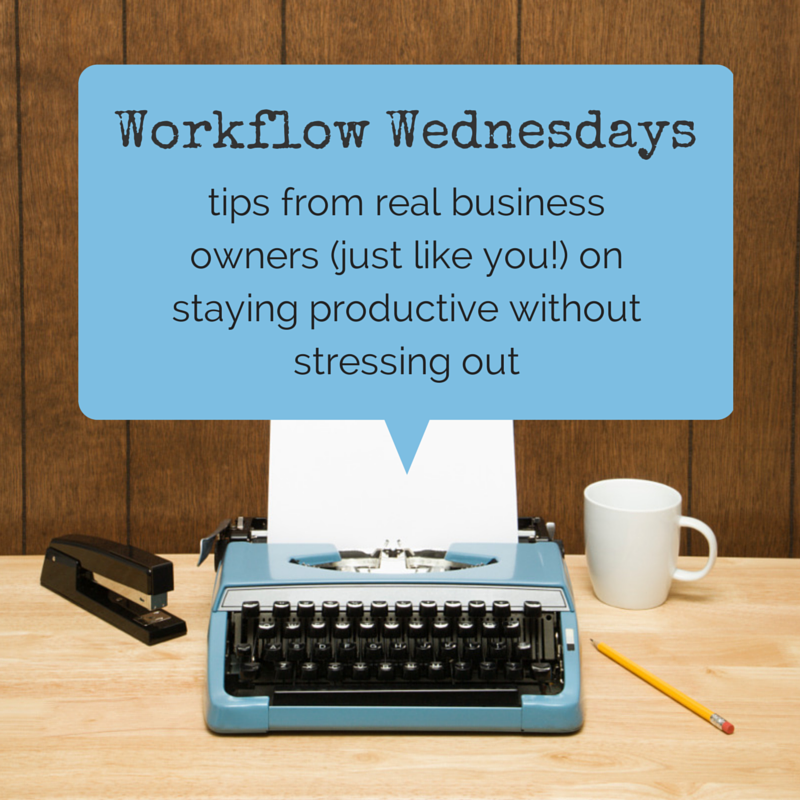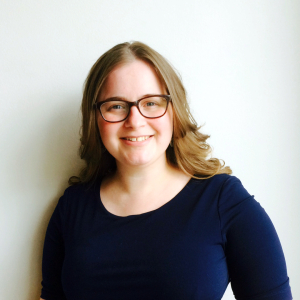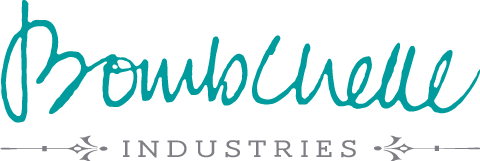
What separates productive people from business owners that are constantly stressed? This post is part of weekly feature, Workflow Wednesdays, that aims to find out, with a weekly post going in-depth on a specific part of a business owner’s workflow and what they do that makes it rock. Interested in being featured in a post? Sign up here!
Editing has been on my brain as of late, since I’m working hard at NaNoWriMo and contemplating how to tackle the seemingly-massive process of editing it, so I got Chrissy Das to sit down and answer a few questions for this week’s installment:
Can you tell us a little bit about editing and how you got into editing?
The publishing industry has been on my radar since I was a small girl. The first series I loved was Nancy Drew and I tried to do an essay on Carolyn Keene. When I learned she wasn’t a real person, I realized how powerful editors can be during the creation of a book or series.
During my senior year I studied at the feet of Susan Kammaraad-Campbell, founder and publisher of Joggling Board Press. I immersed myself in the publishing world. It was great because I got to see everything from unsolicited manuscripts to the printing of a JBP book at a printer in Columbia, South Carolina.
I have flexed my editing muscles on business correspondence, proposals for government projects, ebooks and web copy. I mastered proofreading and copy editing, and have begun developmental editing. I specialize in non-fiction but also enjoy editing fiction. My area of editorial strength is my ability to hone the writer’s idea into an actionable sentence.
How do you find the editing process different than the writing process?
Writing is more exhausting than editing. I think it’s different for everyone; for me editing is this balance of rules and art. You have this piece to work from that someone poured part of their soul into and you have to respect the energy and time they spent. Editing hinges on the collaboration between the editor and the author.
Writing is a solitary affair. You’re still thinking of the audience but there’s no necessarily a live person involved during the process. I am an ENFJ, almost 99% Extroverted, and I thrive on interaction. Right now I edit more than I write and one of my goals for 2015 is to even that out a bit.
When it comes to self-editing, whether it’s blog posts or books, what are the most common mistakes that people make?
People try to edit something they have written right away and that is the worst thing you can do. A little bit of time and mental distance can help you see your writing as a whole instead of trying to make it better piece by piece. Another common mistake is knowing what you meant to write and reading it as you intended instead of as you actually wrote it down. Trading blog posts or manuscripts with a friend lets you both get feedback and make improvements.
When you start to approach a new editing project, is there any specific process or workflow that you find really helps?
I’m more traditional in my editing methods. I print out the entire manuscript and read the words in print. The first time I read through, I pencil notes in the margins. The second time through I use a blue pen (red pens are harsh) and make more detailed corrections.
My clients receive a Word document of tracked changes and comments I made. They also receive a clean revised copy of their manuscript. This means that for a Michelle Manuscript it would be Michelle_title_edit1 and Michelle_title_clean1. Clean1 would be a workable Word document you could keep writing on and making changes to. Edit1 would have a log of my change suggestions and my comments.
So, as you know, I’m doing NaNoWriMo this month. It’s the single largest thing I have ever written in my life, and I’m already dreading editing it. Do you have any time-saving tips or processes for people that are editing a large-scale project for the first time? Or just maybe a few suggestions for handling the difference between editing small-scale and large-scale? I mean, my Kindle book is around 11,000 words, so not exactly tiny, but as of writing, this novel draft is over 25,000 words…so it’s significantly larger and very intimidating!
Whew! Kudos to you, Michelle, for taking on NaNoWriMo! If you want to edit your own manuscript, I would set specific times to review your work. For example, if you write from 7 – 9 every morning, wait until after lunch to edit your chapter. It can get overwhelming to edit your own work. You may also miss some spots that aren’t working because you stared at them too long. Get around fatigue or self-blindness by reading great writers and setting up a trade system with other writers. Peer editing is a good way to see if your manuscript is on the right track.
When you create a manuscript, you put a lot of yourself into it. You know your whole backstory and you know your idiosyncrasies; the reader does not. You want to create a manuscript that connects with people who don’t even know you, have never met you, and have never met anyone like you. When you pass your manuscript along to a peer, they can tell you which holes are there from their reading. The best trick is to find a fellow writer you don’t know well and whose background is different than yours. You’ll both notice different points of weakness in each other’s work.
One of the things I’m contemplating when it comes to NaNo is that I’d really like to get through the editing process as fast as possible. I’m not sure how to do that, though, because even having someone else do the editing, I’d also still like to have a few sample readers, and give it at least a cursory glance over myself, too. Do you have any rapid-cycle editing tips? Is that even a thing, or is it always just a slow process?
I have both writing clients and editing clients. For my editing clients, my manuscript turnaround is usually 2 – 4 weeks depending on my workload. I can do rush jobs but I prefer to savor the story rather than “hit it and quit it.”
If you’re editing your own work with a firm deadline in mind, set mini-goals or milestones to get through. Let’s say you have 50,000 words that you want to edit in two weeks. Edit 5,000 words a day, take the weekends off, and you’re golden!
Are there any editing apps or writing tools that you find really useful?
I swear by Evernote. I use it for everything from brainstorming to working out outlines and chapters. For editing, I stick with Word and my pen and paper. I do occasional work in InDesign if an author requests it, but I leave the layout to the experts.
Anything else you’d like to add?
I am running an editing sale to reward my NaNoWriMo friends for their hard work! Writing a book is always a challenge and I am proud to know people working on one in such a short timespan. If you want more information, you can check out the details here.
More about Chrissy:
 Chrissy Das edits fiction and non-fiction novels for first-time writers and award-winning published authors. She enjoys attending the theatre and running with her husband. Her fondest memories are the year she spent abroad when she met her husband and attended many Royal Shakespeare Company performances.
Chrissy Das edits fiction and non-fiction novels for first-time writers and award-winning published authors. She enjoys attending the theatre and running with her husband. Her fondest memories are the year she spent abroad when she met her husband and attended many Royal Shakespeare Company performances.
